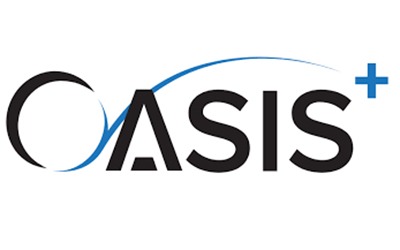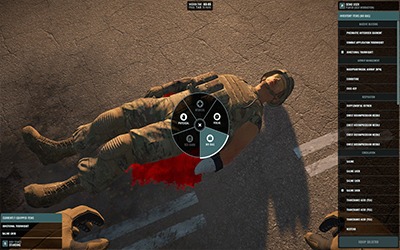New program integrates haptics technology within U.S. Army’s Synthetic Training Environment System.
July 14, 2020- Orlando, FL – Waymon Armstrong, ECS CEO/President, announced that Engineering & Computer Simulations (ECS) has been awarded a direct to Phase II Small Business Innovation Research (SBIR) project with the Defense Health Agency (DHA) to design and develop haptics-based mixed reality training systems within the U.S Army’s Synthetic Training Environment (STE). The ECS team will build a mixed reality (MR) system to demonstrate how Warfighters can effectively collaborate within the Tactical Casualty Combat Care (TC3) environment using haptic devices. The program led by Shane Taber, Vice President of Operations, Orlando, includes partnering with HaptX and Mayo Clinic to pilot the technology. Joanne Barnieu, Director of Instructional Science, will be the principal investigator.
Armstrong states: “We are honored to be awarded our first phase II SBIR contract and to be able to provide enhanced training solutions to our Soldiers within the Army’s STE systems. This type of haptics integration offers a sense of touch and natural interactions within various virtual, augmented, and mixed reality scenarios. When applied in a medical environment, this integration with TC3 will provide our Warfighters and healthcare professionals the tools that they need to improve their quality of training and retention to potentially save more lives.”
The ECS team will be integrating HaptX Gloves in mixed reality environments to directly address several challenges in Department of Defense (DoD) medical training. These include: adding physical components of patient-surrogates to reduce Live Tissue Training (LTT) and enhance human-based training; delivering a fully integrated Live, Virtual, Constructive, and Gaming (LVCG) training environment; maintaining “point of demand” integrated, interoperable, and synchronous medical training environments; and enhancing training through augmented and virtual reality (VR) systems. This project will also include multi-player integration, instructor dashboard and analytics, STE integration, and a training effectiveness evaluation. ECS is working with Mayo Clinic to test the technology at their campus in Jacksonville, FL, with the intention of guiding this type of medical simulation training towards acceptance at the clinic.
Joe Michaels, Chief Revenue Officer of HaptX, says: “We believe HaptX Gloves are uniquely suited to meet the demanding requirements of the U.S. Army’s Synthetic Training Environment program. We’re eager to demonstrate how HaptX Gloves can increase the effectiveness of mixed reality training for military and civilian healthcare professionals, using next-generation touch feedback technology to improve both simulation and collaboration.”
Taber adds: “We’re pleased to contribute to the body of research related to human performance and training effectiveness combining multiple MR and haptics technology systems. By collaborating with HaptX and Mayo Clinic, this type of innovative work will advance high-fidelity VR integration by blending state-of-the-art hardware and software solutions.”



